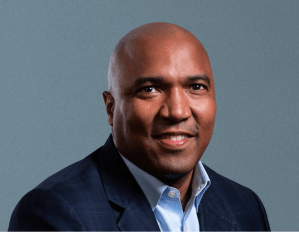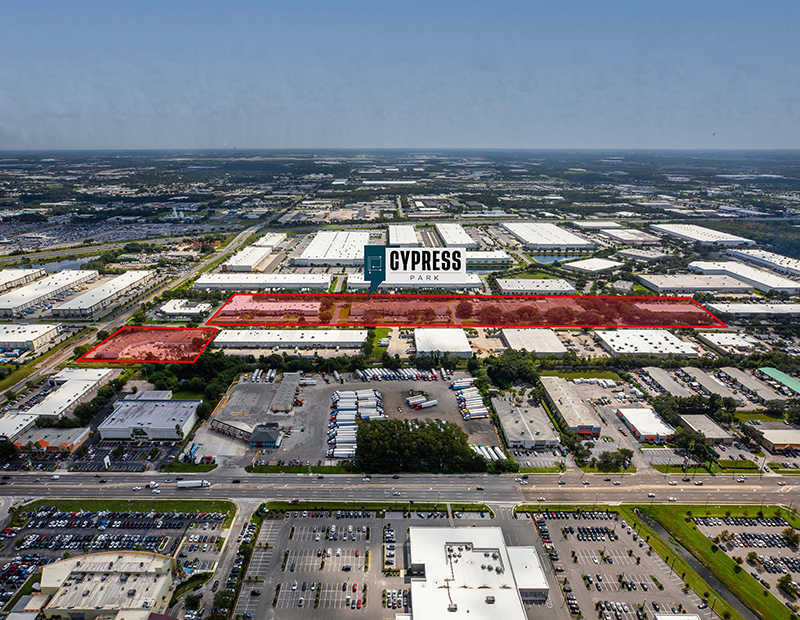CBRE’s Tim Dismond on Empowering Black Voices in ESG
In honor of Black History Month, CPE asked CBRE’s first global chief diversity officer to weigh in on how CRE companies can incorporate ESG practices to support diversity, equity and inclusion.
ESG has become an increasingly important consideration in recent years as businesses seek to align their investments with their values, and contribute to a more sustainable future.
Commercial Property Executive caught up with CBRE‘s Tim Dismond, the firm’s first global chief diversity officer, who shared his insights on how companies can incorporate ESG practices to promote diversity, equity and inclusion, and how this can be tied to the ongoing efforts to celebrate and honor the achievements and contributions of Black Americans.
Dismond is part of CBRE’s Executive Committee—a group of 10 global executives responsible for driving the company’s business worldwide—and serves on the Black Excellence Employee Business Resource Group Executive Committee, as well.
READ ALSO: The Role of Education in Advancing DEI
We last spoke to you in late 2021. What have you achieved since then? What challenges have you had to overcome as chief responsibility officer?
Dismond: Integrating and operationalizing our ESG strategic priorities globally can be challenging. It is important that every initiative we bring forward is supported by all parts of the company, from HR to Legal and Compliance, Finance and Marketing, and to our client-facing businesses.
We are best positioned when we work together to implement our ESG strategies and continually evaluate feedback from all parts of the business. This means listening to concerns, changing course and adjusting expectations to ensure progress toward a more sustainable and just future.
You are an accomplished leader in the field of corporate responsibility. What brings you a sense of job satisfaction?
Dismond: Throughout my career, managing people and empowering them to do their best work has been a priority. As a leader, I’ve seen the positive operational results that can happen when employees with different perspectives and backgrounds are valued, heard and engaged. Helping people bring their full authentic selves to work, grow their careers and deliver great results is what makes my job worthwhile.
Give us some details about your involvement in CBRE’s Black Excellence Network Group.
Dismond: Our Black Excellence Employee Business Resource Group is one of our 17 EBRGs which share more than 19,000 members globally. Our EBRGs are an integral component to advance CBRE’s DEI strategy. They create impact by helping advise on professional development, recruiting and retaining diverse talent and contribute to solutions for some of our company’s most important priorities.
Black Excellence started as a group of four sales professionals and has since grown to more than 1,200 employees in all business segments across the U.S. The group advances diversity and inclusion as a core value benefitting CBRE, our clients and our communities, and intentionally focuses on recruiting, retaining and developing our Black professionals at all levels.
I’ve been an active member since I joined CBRE and served on its Executive Committee for more than 10 years. Supporting and enabling the work of Black Excellence as well as all of our EBRGs is one reason why CBRE has been named one of America’s best employers for diversity.
LISTEN TO: CREW Up Podcast—Working Together Toward Pay Equity in CRE
Elaborate on other initiatives CBRE has implemented to create a more diverse and inclusive work environment.
Dismond: To build a more inclusive culture, CBRE rolled out unconscious bias training globally to all employees in 32 languages. Some 94 percent of our executive leaders and nearly 80 percent of managers completed the training.
We also created a Global Executive Inclusion Council, which comprises senior leaders who enable our DEI strategy, champion initiatives and drive outcome-based performance metrics. Also, we established and formalized flexible work policies that are important for retaining more diverse employees. For our annual goal-setting process, we strongly encourage all employees to establish a DEI-focused performance goal.
To increase the diversity of our workforce, as part of our recruitment efforts, we enhanced our technology to better capture the diversity of candidates and track their journey. When hiring, we have guidelines to create and consider a diverse slate of candidates as well as leverage a diverse interview panel.
We have also partnered with nonprofits to create more opportunities for talent from under-represented groups in our industry through training, innovative workshops and scholarship programs. Two examples include Project Destined and Thurgood Marshall Scholarship Fund.
In what manner can real estate companies better integrate ESG practices across their business strategies? What are the most difficult aspects of this process?
Dismond: It’s important to focus on measurable outcomes. For example, one of our key DEI strategic priorities is strengthening our inclusive culture. We evaluate the results from our annual employee engagement survey, which includes three questions specific to DEI and we’re looking to improve our score each year.
Another important aspect of implementing a global strategic framework for ESG is the understanding that each initiative must be locally driven and supported across all parts of the business. For example, diverse attributes can be different in each country and there are different legal considerations, so this can create challenges for how companies can use and report on diversity data.








You must be logged in to post a comment.